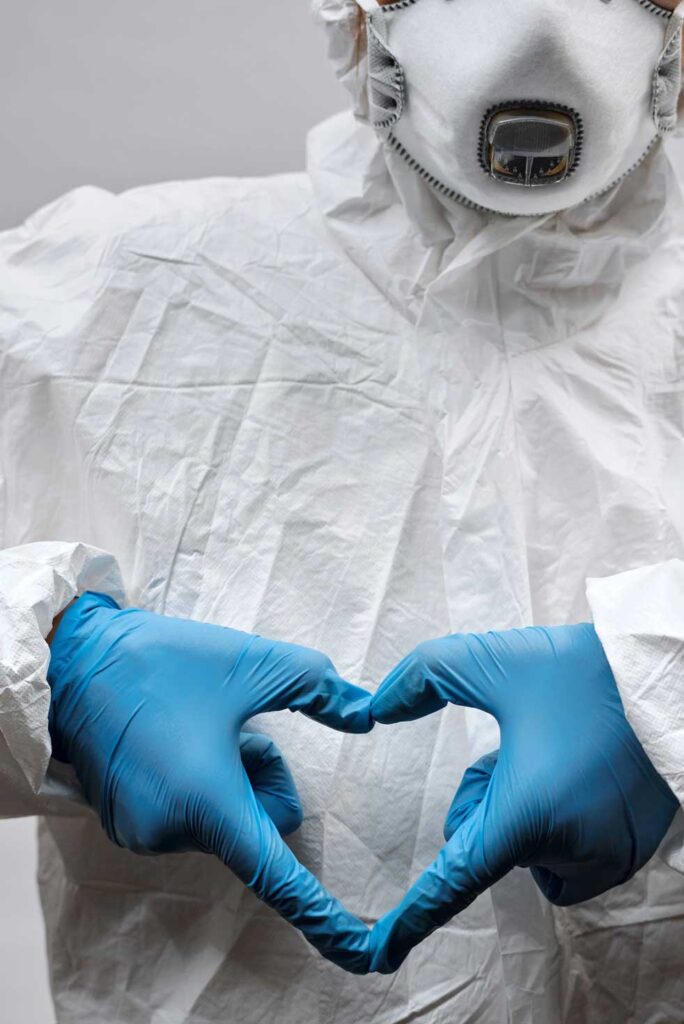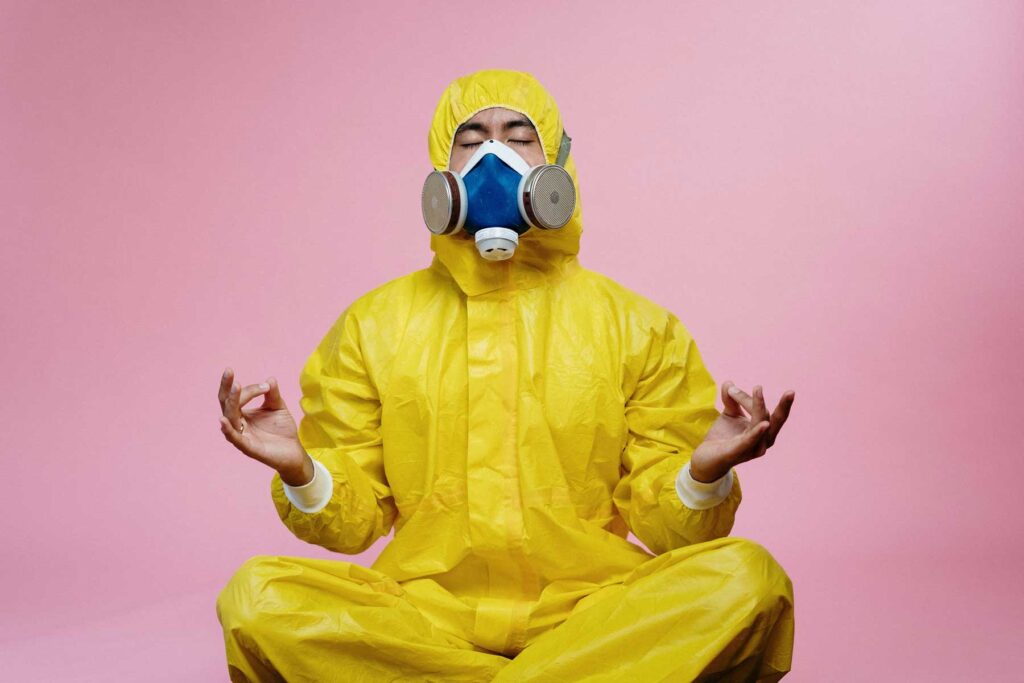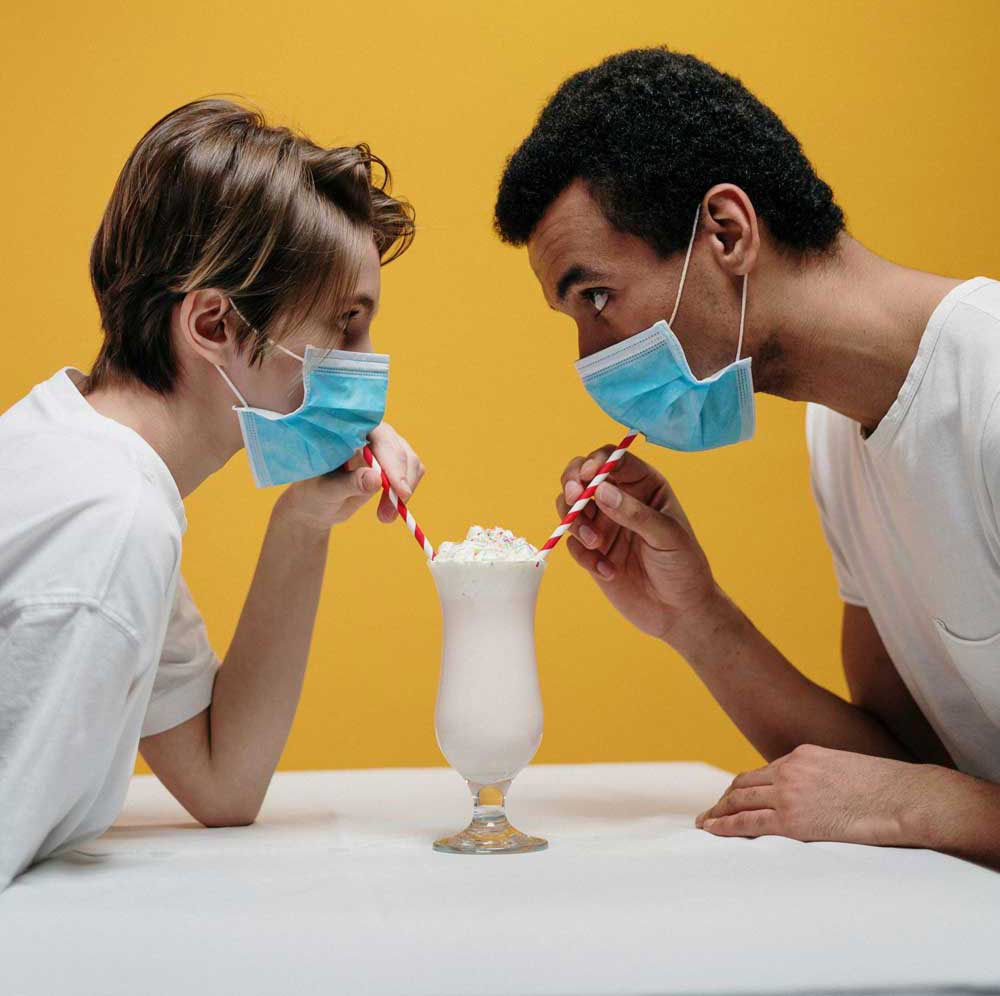Notwithstanding majorly individuals who recovered fully from COVID-19 within days or weeks of infection become victims of post-COVID symptoms thereafter. What do you think, can COVID-19 affect your heart?Under the American Heart Association, an increasing number of studies have revealed and stated that mostly COVID-19 survivors encounter some sort of heart damage after their medical investigation and scrutiny of COVID. This diagnosis shows symptoms like dizziness, accelerated heart rate, chest pain, shortness of breath, brain fog as well as fatigue. So this blog highlights the key features about COVID 19 and heart palpitations.
Research analysts and medical professors in the University of Alabama at Birmingham’s Division of Cardiovascular Disease as well as cardiologists in the UAB Cardiovascular Institute lead to an important insight on when these symptoms must become a concern and issue and how they must be resolved with respect to resting heart rate and COVID.

THE CRUCIAL QUESTION ARISES WHETHER THERE IS ANYTHING THAT CAN ASSIST IN ALLEVIATING MUSCLE FATIGUE AS WELL AS HEAVINESS DURING EXERCISE?
Muscle aches are a very common symptom as well as a phenomenon after COVID-19. Similarly it has been observed that patients who get infected with this disease are likely to have an increased heart rate after COVID-19. A wide array of problems can trigger muscle aches as well as fatigue. These muscle aches might consist of prolonged bed rest, inactivity as well as severe inflammation during the primitive stages of COVID-19. But at the same time diligent precautions must be taken to combat COVID 19 and surveillance of heart palpitations.
Your health professional and doctor can carry out tremendous bloodwork to ascertain whether there is an underlying or ongoing active muscle breakdown. Health professionals opine that physical rehabilitation, as well as regular exercise, can assist in rebuilding muscle loss as well as improve exercise capacity for sound heart health post COVID.

WHETHER IT IS NORMAL TO POSSESS AN ACCELERATED HEART RATE AS WELL AS CHEST PAIN, DESPITE YOUR CARDIAC MRI BEING NORMAL?
There are several underlying causes of chest pain, but a rapid heart rate is very common in post-COVID patients. The underlying triggers and causes of rapid heart rate can consist of being out of shape owing to prolonged illness as well as excessive bed rest. Some patients develop an abnormal rise in the heart rate upon standing owing to an abnormality in the autonomic nervous system which is not associated with COVID-19 and heart palpitations.
COVID 19 affects your heart. If the MI was identified as normal, then the heart injury experienced owing to COVID is probably not the cause of your chest pain as opined by the expert research analysts and doctors. Your physician would require to obtain a careful description of the particular type of chest pain as you are required to ascertain that if you require to procure a careful description of the particular type of chest pain that you are actually required to ascertain that if you require additional testing for other allied causes of chest pain. If your heart rate is steadily dropping down each time you walk or run then it is a sign that you are becoming better and there are no issues pertaining to low heart rate and COVID 19.
IF YOU FEEL THAT YOUR HEART PACES QUICKLY AFTER ANY EXERTION AND YOU TIRE QUICKLY. THEN HOW CAN YOU BUILD YOUR ENDURANCE BACK UP BY BUILDING HEART HEALTH POST COVID.
Since COVID-19 affects your heart, research Analysts and Health professional doctors advise that people try to ease into exercise again immediately after the recovery phenomenon ends. Mild levels of exercise such as walking can assist people who strive to ease into exercise again after recovery. Mild levels of exercise such as walking can assist a lot with heart health post COVID. If your heart races while you stand up, striving to adopt reclining exercise machines such as a rowing machine or a semi-recumbent bicycle can prove to be of great help. Major patients reveal that considerable improvements have been noticed after a period of six to twelve weeks using this mechanism.

Each and every week or two, increasing the amount of exercise time until you can exercise comfortably for thirty to forty-five minutes in your routine can work wonders. With these strategies and patterns, you can also increase the intensity of the exercise.
AT WHAT POINT AND ASPECT SHOULD HEART PALPITATIONS MUST BE TAKEN SERIOUSLY AFTER BEING A COVID-19 PATIENT?
COVID 19 and Heart palpitations are sensational feelings that the heart is thumping, pounding, fluttering, or beating irregularly. These symptoms are mostly found in patients with known or suspected heart injury or who have weak heart muscle.
Most of the patients who had encountered COVID in the past experienced not only COVID 19 recurrence probability as well as heart palpitations even when their heart rhythm is normal. In these cases, a normal telemetry study can be very reassuring as opined by expert health professionals. A telemetry monitor can record heart rhythm as well as assist in determining if palpitations represent an abnormal heartbeat.
WHAT IS THE MOST COMMON HEART-RHYTHM COMPLAINT? HOW LONG DOES IT PREVAIL AS WELL AS EXIST TO SUBSIDE, IF AT ALL ITS OCCURRENCE IS WITNESSED?
It is significantly necessary to understand as well as manage post-COVID symptoms which are sometimes called long COVID or post-COVID syndrome for better heart health post COVID.
The very known and common heart rhythm complaint addressed by patients is heart pounding or racing as told by patients. Symptoms can improvise by exercising in a reclined posture or situation. At the same time, due diligence and care must be taken with regards to staying hydrated in patients who are experiencing a heart rate increase and dizziness upon standing with respect to sound heart health post COVID.
In a small quantum of patients having evidence of heart injury, abnormal beats from the heart’s main pumping chambers are encountered and witnessed as far as COVID 19 and heart palpitations are concerned.
This can be considered as a serious condition in people having heart injury and it requires a thorough assessment and investigation by a cardiologist specifically before resuming vigorous exercise as shared by expert health professionals as a precaution towards heart health post COVID.
NOW THE CRUCIAL QUESTION EMERGES: WHETHER YOU SHOULD VISIT A HEART SPECIALIST IF YOUR RESTING HEART RATE IS LOWER THAN IT WAS BEFORE CONTRACTING COVID-19?
On a generic note, a low resting heart rate is considered healthy in the absence of COVID-19. You might seem to be wondering whether a primary care doctor should order an ECG test. You also might desire to check your heart rate to see if it rises normally as and when you exert yourself. If the ECG demonstrates that the rhythm is normal and your heart rate increases with exercise then you are not required to be pissed off and hassled about it as concluded by expert health professionals.
Minimal exertion to treat “brain fog” results in a spike in your heart rate. Should you continue to exercise for excellent heart health post COVID?

CONCLUSION:
Particularly exercise is thought to be advisable and a sound good habit for brain function but at the same time it also might assist with anxiety or depression, both of which can influence thinking and concentration in a few post-COVID patients especially when heart health is concerned.
A heart rate of 90-110 beats per minute is not a concern as long as you otherwise feel well during exertion. Your doctor or a physical rehab specialist can assist you in developing an exercise plan that suits you consisting of setting a heart rate range to anticipate during exercise as exclaimed by expert health professionals. If you exercise regularly you must observe that your heart rate during exertion comes down over some time. Thus your heart health post COVID is our priority.
Chest pain or discomfort in breathing with shortness of breath is not specifically due to a lung problem. This might imply a higher risk of heart problems. Exclusively, in such cases, patients might seem to benefit from further testing, specifically if the symptoms persist.Ignore no more ensure Zenith Heart Health Specialist’s advice on an urgent priority. Because YOUR HEART HEALTH POST COVID is Zenith’s WEALTH.
Call us on 972-210-0033 to book an appointment with our specialists, and begin living your life pain-free.
